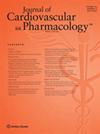阿哌沙班与维生素 K 拮抗剂在抗磷脂综合征患者中的应用:一项队列研究
IF 2.6
4区 医学
Q2 CARDIAC & CARDIOVASCULAR SYSTEMS
引用次数: 0
摘要
现行指南建议,抗磷脂综合征(APS)患者在预防复发性血栓形成时不应使用直接抗凝剂。然而,除了三阳性 APS 和利伐沙班的使用外,几乎没有证据支持这一建议。在一项真实的队列研究中,我们评估了使用阿哌沙班与维生素 K 拮抗剂(VKA)的 APS 患者发生血栓栓塞和出血的风险。我们招募了 152 名 APS 患者(年龄 44 岁[四分位数间距 36-56 岁],83% 为女性),包括 66 名接受阿哌沙班 5 毫克 bid 治疗的患者和 86 名接受华法林治疗的患者(目标 INR [国际正常化比值] 2-3)。在中位随访 53 个月期间,我们记录了静脉血栓栓塞(VTE)、缺血性中风或心肌梗死以及大出血。我们在阿哌沙班患者中观察到 4 例(6.1%,3 例 VTE 和 1 例缺血性中风)血栓事件,在 VKA 患者中观察到 12 例(14%,9 例 VTE,2 例缺血性中风和 1 例心肌梗死)血栓事件。与服用华法林的患者相比,服用阿哌沙班的APS患者发生复发性血栓栓塞的风险相似(HR=0.327,95% CI:0.104-1.035)。血栓栓塞事件在他汀类药物使用者中发生率较低(8% vs 50%,P=0.01),在三阳性APS(50% vs 22.1%,P=0.028)和基线时D-二聚体较高的受试者中发生率较高(P=0.023);阿哌沙班组存在后一种差异(P=0.02)。与华法林相比,服用阿哌沙班的患者发生大出血的风险相似(HR=0.54,95% CI:0.201-1.448)。在现实生活中的APS患者中,阿哌沙班在预防血栓栓塞和出血风险方面似乎与VKA相似,这可能表明一些APS患者可以接受阿哌沙班治疗。本文章由计算机程序翻译,如有差异,请以英文原文为准。
Apixaban versus vitamin K antagonists in patients with antiphospholipid syndrome: a cohort study
Current guidelines recommend that direct anticoagulants should not be used in prevention of recurrent thrombosis in patients with antiphospholipid syndrome (APS). However, except for triple-positive APS and rivaroxaban use, little evidence supports such recommendation. In a real-life cohort study, we evaluated the risk of thromboembolism and bleeding in APS patients on apixaban versus vitamin K antagonists (VKA). We enrolled 152 APS patients (aged 44 [interquartile range 36-56], 83% women), including 66 patients treated with apixaban 5 mg bid and 86 with warfarin (target INR [international normalized ratio] 2-3). During a median follow-up of 53 months, we recorded venous thromboembolism (VTE), ischemic stroke or myocardial infarction, along with major bleeding. We observed 4 (6.1%, 3 VTE and 1 ischemic stroke) thrombotic events in patients on apixaban and 12 events (14%, 9 VTE, 2 ischemic strokes and 1 myocardial infarction) in VKA patients. APS patients on apixaban had similar risk of recurrent thromboembolism compared to those on warfarin (HR=0.327, 95% CI: 0.104-1.035). Thromboembolic events occurred less commonly in statin users (8% vs 50%, p=0.01) and more frequently in triple-positive APS (50% vs 22.1%, p=0.028) and in subjects with higher D-dimer at baseline (p=0.023); the latter difference was present in the apixaban group (p=0.02). Patients on apixaban had similar risk of major bleeding compared to warfarin (HR=0.54, 95% CI: 0.201-1.448). In real-life APS patients apixaban appears to be similar to VKA for the prevention of thromboembolism and risk of bleeding, which might suggest that some APS patients could be treated with apixaban.
求助全文
通过发布文献求助,成功后即可免费获取论文全文。
去求助
来源期刊
CiteScore
5.10
自引率
3.30%
发文量
367
审稿时长
1 months
期刊介绍:
Journal of Cardiovascular Pharmacology is a peer reviewed, multidisciplinary journal that publishes original articles and pertinent review articles on basic and clinical aspects of cardiovascular pharmacology. The Journal encourages submission in all aspects of cardiovascular pharmacology/medicine including, but not limited to: stroke, kidney disease, lipid disorders, diabetes, systemic and pulmonary hypertension, cancer angiogenesis, neural and hormonal control of the circulation, sepsis, neurodegenerative diseases with a vascular component, cardiac and vascular remodeling, heart failure, angina, anticoagulants/antiplatelet agents, drugs/agents that affect vascular smooth muscle, and arrhythmias.
Appropriate subjects include new drug development and evaluation, physiological and pharmacological bases of drug action, metabolism, drug interactions and side effects, application of drugs to gain novel insights into physiology or pathological conditions, clinical results with new and established agents, and novel methods. The focus is on pharmacology in its broadest applications, incorporating not only traditional approaches, but new approaches to the development of pharmacological agents and the prevention and treatment of cardiovascular diseases. Please note that JCVP does not publish work based on biological extracts of mixed and uncertain chemical composition or unknown concentration.

 求助内容:
求助内容: 应助结果提醒方式:
应助结果提醒方式:


